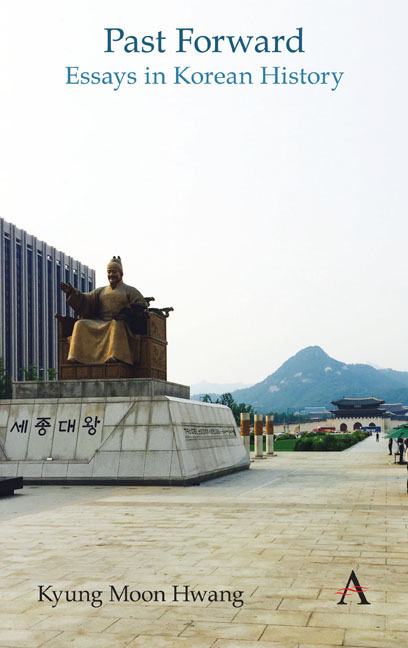Book contents
- Frontmatter
- Contents
- List of Figures
- Foreword
- Chronologies of Korean History
- Themes
- Acknowledgments
- Note on Romanization and Spelling
- Part I Circulating History
- Part II Durable Traditions
- Part III Ancient Remains
- Part IV Dynastic Depths
- Part V Modern Origins
- 24 Jungin, Forerunners to Professionals
- 25 1894, a Signal Year
- 26 Great Korean Empire
- 27 March First Independence Movement
- 28 The Politics of Disease
- 29 Korean Universities
- Part VI Challenges of Nationhood
- Part VII History Makers
- Part VIII External Presences
- Part IX Trials of Modernization
- Part X Gripped by the Past
- Index
24 - Jungin, Forerunners to Professionals
from Part V - Modern Origins
- Frontmatter
- Contents
- List of Figures
- Foreword
- Chronologies of Korean History
- Themes
- Acknowledgments
- Note on Romanization and Spelling
- Part I Circulating History
- Part II Durable Traditions
- Part III Ancient Remains
- Part IV Dynastic Depths
- Part V Modern Origins
- 24 Jungin, Forerunners to Professionals
- 25 1894, a Signal Year
- 26 Great Korean Empire
- 27 March First Independence Movement
- 28 The Politics of Disease
- 29 Korean Universities
- Part VI Challenges of Nationhood
- Part VII History Makers
- Part VIII External Presences
- Part IX Trials of Modernization
- Part X Gripped by the Past
- Index
Summary
One of the most interesting hereditary social groups of premodern Korea was a band of technical specialists called the jungin (“middle people”). During the latter half of the Joseon kingdom, the jungin carried out specialized, technical functions shunned by the better-known yangban nobility but nonetheless essential to the functioning of the government. They filled official posts responsible for interpreting, medicine, law, the sciences, accounting, document preparation and even painting.
The jungin who staffed the Office of Interpreters, for example, trained civil servants in foreign languages (Chinese, Mongolian, Manchu, and Japanese), devised state examinations and supplied government interpreters for the court. These interpreters, a select group that had to pass a competitive screening process to win appointment, translated documents, compiled textbooks and developed the curriculum for foreign language instruction. But the most prominent function of these interpreters was to represent the court and government in border localities such as Uiju and Busan, as well as outside the country by joining periodic diplomatic missions to China and Japan. This experience also provided opportunities to build wealth through trading.
Perhaps most importantly, their linguistic skills and exposure to the outside world supplied them with ideas, models and contacts that eluded most other Koreans, including the ruling aristocracy. This would prove particularly important to the jungin during the Korean enlightenment period beginning in the late nineteenth century. Among the most visible and influential jungin interpreters were those in the Hyeon family, which produced a veritable who's who of major figures of the early modern period. These people helped shape the wave of government and social reform characterizing the Korean enlightenment, ascended the bureaucratic ranks of the officialdom and contributed greatly to the emergence of a new elite and culture in modern Korea.
We can begin with Hyeon Chae, who at the turn of the twentieth century produced more than a dozen translations and textbooks on subjects ranging from history to Korean grammar. His works, in fact, represented a microcosm of the diverse intellectual trends among the cultural pioneers of this period. They employed the lessons of Social Darwinism, republicanism and other ideologies to further the cause of self-strengthening, Western education, Korean independence, and the awakening of the nation. More than any other traditional status group, it was the jungin who stood at the forefront of these fundamental, nearly revolutionary changes.
- Type
- Chapter
- Information
- Past ForwardEssays in Korean History, pp. 69 - 71Publisher: Anthem PressPrint publication year: 2019



